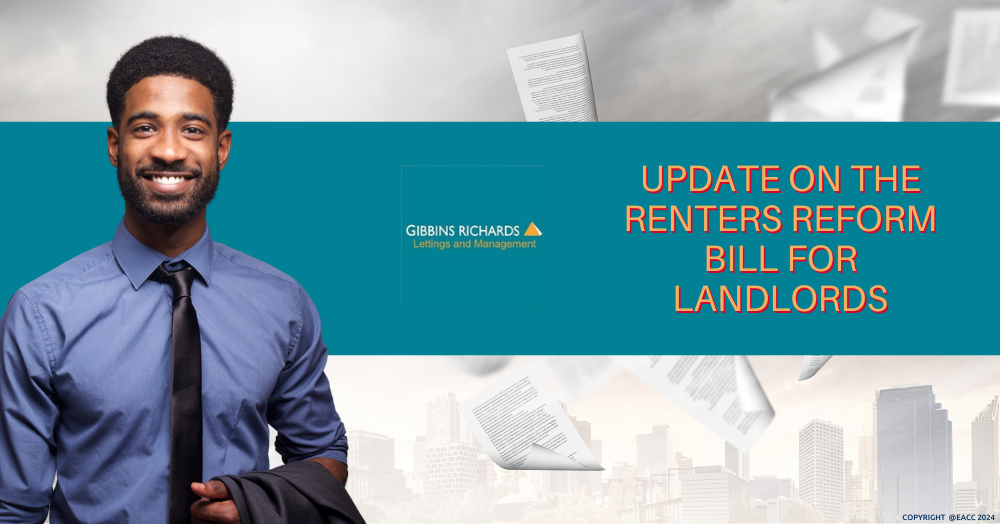Blog
- Details
- Hits: 103
Maintaining a rental property isn’t just about collecting rent; it’s about safeguarding your investment and keeping your tenants happy and safe.
That’s why regular property inspections are so crucial.
They help you spot potential issues before they become costly repairs and ensure your property remains a place people are proud to call their home.
Here’s the lowdown on the five key areas you need to focus on during your inspections:
Structural integrity: Let’s talk about the ‘bones’ of your property. Look for any cracks in the walls and ceilings. Also, checking the roof for missing tiles or leaks is a smart move.
Plumbing and electrical systems: No tenant wants the surprise of a cold shower or a flickering light. Give all your taps, toilets and pipes a once-over for leaks or signs of corrosion. Light fixtures and wiring must also be safe to prevent potential hazards – it’s the law.
Heating and insulation: Ensure the boiler works efficiently and the radiators do their job. Proper insulation is key to keeping the heat in, the energy bills down and your tenants happy.
Safety equipment: This is about more than ticking boxes – it’s about ensuring your tenants’ safety. Smoke detectors, carbon monoxide alarms and, if required, fire extinguishers need to be in top working order and up to date with the latest safety regulations.
General wear and tear: A bit of damage is expected, but you’ll want to watch for anything that’s gone beyond ‘a bit’. Damaged fixtures, broken flooring and any changes made without your permission should be on your radar.
Remember, as a landlord, you must adhere to many rules and regulations that constantly change. These include several laws around property inspections.
The good news is we can help take that load off your mind and handle all inspections, tenant relations and property management for you.
By staying on top of these five essential checks, you’re not just keeping your property investment in pristine condition but also building a solid, respectful relationship with your tenants.
What’s not to love about that?
Thanks for reading. Contact us today to find out more about our property management services.
- Details
- Hits: 108
Planning to renovate your rental? There’s one thing you should know before you start pulling up carpets or ripping out cabinets.
It will help you avoid a costly and avoidable mistake that many landlords make, and it’s this.
Don’t let your emotions cloud your decision-making.
It sounds simple, but you’d be surprised how many landlords lose sight of the fact that they’re supposed to be making business decisions. As a result, they do one or more of these things:
- Spend more than they need to.
- Spend cash in the wrong areas.
- Wind up with a longer void period than necessary.
- Do a sub-standard job that requires repairs.
- Put off doing much-needed work.
Here are some tips to help you stay on track.
Identify your market – Don’t decorate to your personal tastes. Consider who will most likely rent your property – students, families or professionals – and renovate to suit this demographic. A bespoke kitchen might be justified if you’re targeting wealthy professionals, but not if you’re renting to students.
Neutral tones – If you’re yearning to make a bold interior design statement, do it in your own home, not your rental. Prospective tenants may not share your tastes and could be put off by your aesthetic choices.
Go beyond the cosmetic – Do the locks need fixing? Are the fences wobbly? Does the boiler need replacing? It can be tempting to blow your budget on sexy, eye-catching features, but don’t overlook the basics.
Family matters – If you have a strong emotional attachment to the property (perhaps it was your former family home), don’t let sentiment misguide you. You must separate any nostalgic feelings from your duties as a landlord.
Be practical – A rental will always be subject to wear and tear, so opt for durable products and steer clear of light wall colours and flooring that will get mucky quickly.
Be realistic – Not even the best tenants in the world will treat the property exactly as you would, so look for low-maintenance solutions. This is particularly relevant if you have outdoor space, as garden maintenance is a common cause of disputes.
Avoid false economies – While some landlords go overboard and spend too much, others don’t spend enough. For example, tiles are easy to clean and don’t attract mould, so it can make sense to tile the entire bathroom to prevent issues from arising.
Don’t be a DIY hero – Instead of paying a tradesperson to do work, some landlords consider it a personal challenge to do as much as they can themselves. This means work can take longer than necessary or it isn’t done to a professional standard.
If you’re a landlord, contact us here at Gibbins Richards Lettings and Management Ltd for advice about investing your renovation budget wisely.
- Details
- Hits: 106
Being a landlord is rewarding, but it comes with its own set of challenges and responsibilities.
Over the years, we’ve seen and helped solve most of the mistakes landlords can make.
To help you navigate this complex terrain, here are the five most common mistakes we’ve encountered and how to avoid them, ensuring a more profitable and stress-free experience.
Neglecting property maintenance
One of the gravest errors is failing to maintain the property. This leads to disgruntled tenants and costly repairs down the line. Prevent this by scheduling regular check-ups and addressing issues promptly.
Inadequate tenant screening
Skipping thorough background checks can land you with troublesome tenants. Conduct comprehensive credit, reference and background checks to secure reliable and responsible tenants. It’s much more professional and less problematic if you get an excellent letting agency to do this for you.
Not understanding legal obligations
A big one. A lack of knowledge about landlord-tenant laws can result in legal woes. Stay informed about your legal duties, including deposit protection and property safety regulations, like gas and electrical laws, to protect yourself and your investment. Again, a good letting agent keeps you on the right side of the complex and constantly changing compliance rules that govern rental properties.
Poor communication
Failing to communicate effectively with tenants can lead to misunderstandings and disputes. Keeping open lines of communication and being transparent about expectations from the outset helps avoid issues.
Ignoring insurance
Landlords often overlook the necessity of having adequate insurance coverage. Ensure you have the correct insurance to cover potential damages, rental voids, legal disputes and liability claims.
The letting agency advantage
To avoid these common mistakes, why not consider the expert services of our letting agency?
We have helped hundreds of landlords navigate the ins and outs of renting out their properties. From finding the ideal tenants to handling day-to-day management, we are here to ensure your rental investment is as profitable and hassle-free as possible.
Contact us today, and let us help you turn your property investment into a resounding success.
- Details
- Hits: 113
If talk between you and your partner this Valentine’s Day turns to living together, there are a few practical things you should know first.
Here at Gibbins Richards Lettings and Management Ltd, we pride ourselves on being as helpful as possible.
But dishing out relationship advice is a step too far – even for us.
So, if you’re considering moving in with your partner, we’ll leave the big decisions and lovey-dovey stuff down to you.
However, if you decide to co-habit, we have some useful, albeit unromantic, advice for you.
It’s based on insights we’ve gained over the years from helping many couples set up home together.
Speak to your landlord
One option when moving in together is to start afresh in a new rental property. However, if you plan to move into your partner’s rented place or for them to join you, then you need to discuss this with the landlord. Be aware that you’ll need to get the landlord’s permission first, and they’ll most likely have to run a reference check.
Budget and bills
The good thing about living with someone is you can share the financial burden of renting. But you’ll need to have a frank conversation at the start to discuss how much you can afford to pay in rent and how you’ll split the bills.
Jointly liable
It’s worth understanding that when the two of you sign a tenancy agreement, you are both ‘jointly and severally liable’. This means that if, for example, your partner loses their job and can’t pay the rent, you could be liable to pay their share. The same goes for the upkeep and maintenance of the property. You’re both equally responsible.
Logistics
If you both already have your own homes, decide what furniture you’ll each take to your new property. It’s unlikely that you will have room for more than one sofa, bed or dining table, so you may need to give away or sell some big-ticket items. At this point, you may also get the home-making bug and decide to buy some items to turn your new place into a cosy love nest. In that case, it may be time to put your relationship to the test by taking a trip to Ikea. Good luck.
If you’re looking for a new rental property, contact us here at Gibbins Richards Lettings and Management Ltd today.
- Details
- Hits: 155
After years in the making, it looks like the Renters Reform Bill – the biggest shake-up of the private rental sector in decades – will become a reality in 2024.
So, how much do you know about this wide-reaching set of proposals, and are you ready for them?
Be prepared
Perhaps you’ve read a few articles about the bill but have put off getting to grips with the details (after all, politicians put forward all sorts of proposals, many of which never happen). Or maybe you’ve taken the ostrich approach, hoping it will go away. Whatever your response thus far and whatever you think of the bill’s contents, now’s the time to start preparing for its introduction.
Timeline
The bill had its first and second reading in the House of Commons last year. It will be scrutinised further by MPs and the House of Lords this year and is then expected to receive royal assent. Insiders suggest the bill could come into effect in October; however, with a general election also on the cards (at some point in 2024), nothing is set in stone. Initially, the new legislation will only affect new tenancies.
Main components of the Renters Reform Bill
The bill is still subject to amendment, but here’s a general overview. The bill will:
- Abolish fixed-term tenancies.
- Scrap Section 21 ‘no fault’ evictions.
- Bolster Section 8, beefing up the existing grounds under which landlords can regain possession and adding new grounds for possession. Landlords will have grounds to regain possession if they wish to sell up, move into the property or move in close family. They can also evict on the grounds of anti-social behaviour or ‘when tenants wilfully do not pay rent’.
- Allow landlords to increase rents once a year in line with market rates.
- Introduce a Private Rented Sector Ombudsman.
- Ban landlords from discriminating against people on benefits or who have children.
- Give tenants the right to request to have a pet in the property. Landlords cannot ‘unreasonably refuse’ the request, but they can insist a tenant has pet insurance to cover potential damage.
Implications
The bill undoubtedly represents change. But while some systems and processes will need updating to ensure compliance, proactive and responsible landlords shouldn’t panic.
Conducting thorough reference checks and regular inspections and having a proactive maintenance schedule and good rapport with tenants, remains the best protection.
Here at Gibbins Richards Lettings and Management Ltd, we’re available to discuss the bill in more detail with landlords interested to know more. We’ve already had several landlords get in touch, keen to find out more about how the expanded Section 8 rules will work in practice given the abolition of Section 21.
Contact us to discuss the changes in relation to your specific circumstances. And we’ll be closely following the bill’s progress through Parliament, so stay tuned for further updates.
Contact us here at Gibbins Richards Lettings and Management Ltd to find out more about the Renters Reform Bill.














